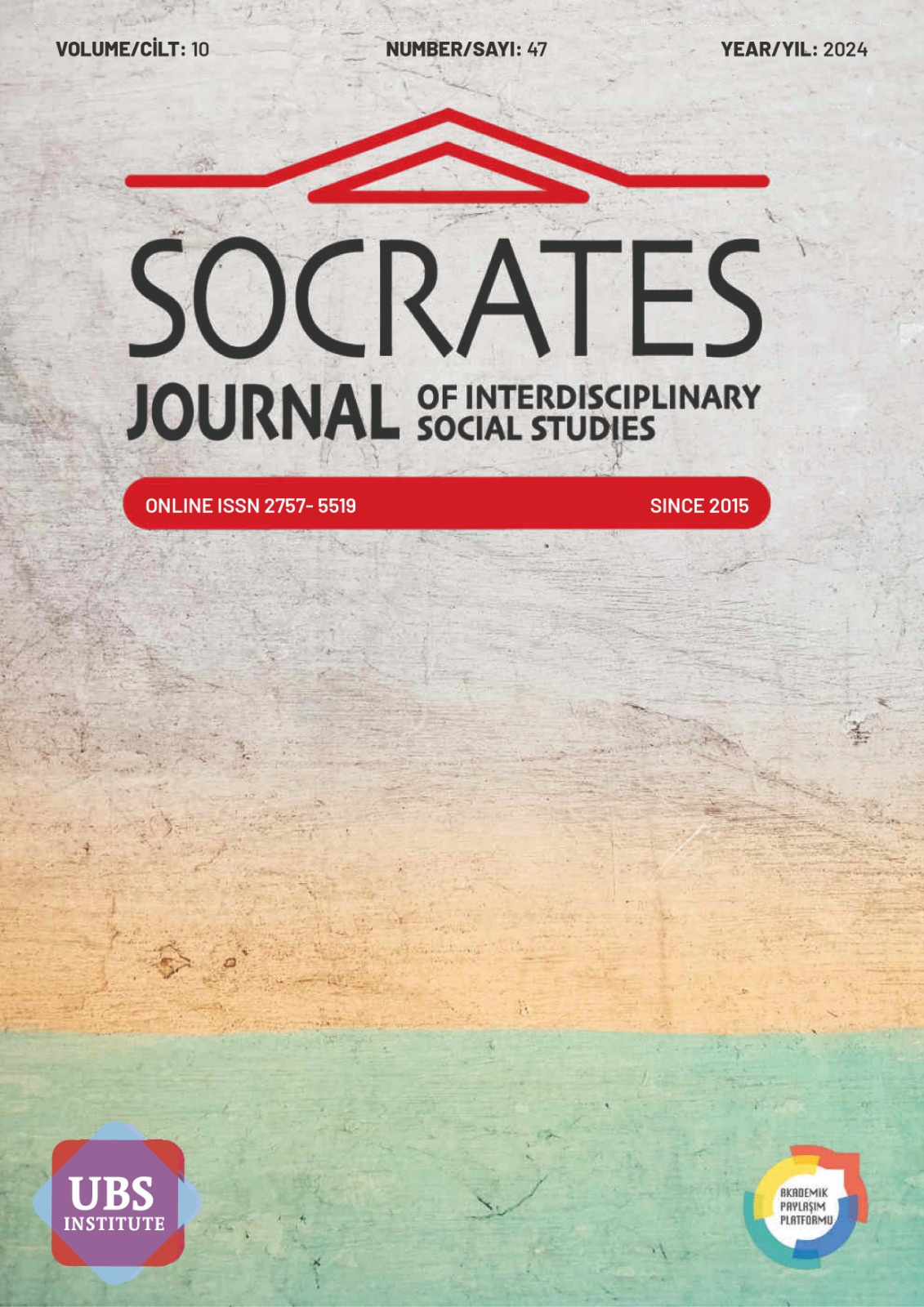ANALYSIS OF THE PROGRAM APPROACHES OF TEACHERS
ÖĞRETMENLERİN PROGRAM YAKLAŞIMLARININ ÇEŞİTLİ DEĞİŞKENLER AÇISINDAN ANALİZİ
DOI:
https://doi.org/10.5281/zenodo.14059959Keywords:
Teacher, Program, Program ApproachAbstract
The aim of the study was to determine the views of teachers working at different levels and units of various public institutions on program orientations and whether these views show significant differences according to various demographic variables (gender, age, education level, years of service and length of service in the institution where they work). The ‘screening design’, one of the quantitative research methods, was used in the study. The universe of the study consists of teachers working in different schools. The sample of the study consists of 425 teachers determined from the universe by the Convenience Sampling method. The “Program Orientation Inventory” was used as the data collection tool in the study. Since the data obtained with the data collection tool used met the normal distribution condition, it was decided to use the “Independent Samples t-Test” and “One-Way Analysis of Variance” from the parametric tests in the data analysis process. It was determined in the study that the program orientations of the teachers were high. In addition, it was determined in the study that there was no significant difference between the program orientations of the teachers according to gender and length of service in the institution where they work. In addition, it was determined in the study that there was a significant difference between the program orientations of the teachers according to the education level and years of service.
References
Büyükkaragöz, S. (1997). Program geliştirme “kaynak metinler”. Konya: Öz Eğitim Basım Yayın.
Büyükkaragöz, S. ve Çivi, C. (1995). Genel öğretim metotları. Konya: Atlas Kitabevi.
Büyüköztürk, Ş., Kılıç Çakmak, E., Akgün, Ö.E., Karadeniz, Ş. ve Demirel, F. (2023). Bilimsel araştırma yöntemleri. Ankara: Pegem Akademi.
Cheung, D., & Wong, H. W. (2002). Measuring teacher beliefs about alternative curriculum designs. Curriculum Journal, 13(2), 225-248.
Demirel, Ö. (2009). Kuramdan uygulamaya eğitimde program geliştirme. Ankara: Pegem A
Eren, A. (2010). Öğretmen adaylarının program inançlarının görünüm analizi. Kastamonu Eğitim Dergisi, 18(2), 379-388.
Ertürk, S. (1994). Eğitimde Program Geliştirme. Ankara: Meteksan Matbaacılık.
George, D. ve Mallery, M. 2010. SPSS for windows step bysstep: A simple guide and reference. Boston: Pearson.
Göçer, V. & Kaya, F. (2023). Değerler eğitimi bağlamında ilkokul öğretim programlarının incelenmesi, E-Uluslararası Eğitim Araştırmaları Dergisi, 14(5), 274-295. https://doi.org/10.19160/e-ijer.1367295
Günden, S. (1998). Genel öğretim bilgisi. Ankara: Yaygın Eğitim Kurumu Yayınları.
Gürbüz, S. ve Şahin, F. (2017). Sosyal bilimlerde araştırma yöntemleri. Ankara: Seçkin Yayıncılık.
Kuzu, O., Göçer, V. ve Akçay, A. O. (2024). Türkiye Yüzyılı Maarif Modeli Kapsamında İlkokul Matematik Dersi Öğretim Programı’nın İncelenmesi. RumeliDE Dil ve Edebiyat Araştırmaları Dergisi, (41), 640-667. https://10.5281/zenodo.13337757
Külahçı, Ş. (1995). Analiz ve program geliştirme. Öğretmen Yetiştirme Modül Serisi Öğrenci Kılavuzu. Ankara: Özışık Ofset.
Özçelik, D. A. (1987). Eğitim programlan ve öğretim: Genel öğretim yöntemi. Ankara: ÖSYM Eğitim Yayınları.
Pınar, W.F., Reynolds, W.M., Slattery, P., & Taubman, P.M. (1995). Understanding Curriculum. New York: Peter Lang Publishing Inc.
Tabachnick, B. G., & Fidell, L.S. (2013). Using multivariate statistics. (6. edition). ABD: Pearson Education.
Taşdemir, M. (2007). Sınıf öğretmenlerinin okul, meslektaşları ve kendi mesleki yeterliklerini algılamaları. Milli Eğitim Dergisi, Bahar Sayısı, 174, 171-191.
Varış, F. (1994). Eğitim bilimine giriş. Atlas Kitabevi, Konya.
Varış, F. (1996). Eğitimde program geliştirme. Ankara: Alkım Kitapçılık Yayıncılık.
Yüksel, S. (2007). Örtük Programın Öğretmen Adaylarının Öğretmenlik Meslek Derslerine Yönelik Düşüncelerindeki Etkisi. Kuram ve Uygulamada Eğitim Yönetimi, Bahar, 50, 321-345.
Downloads
Published
How to Cite
Issue
Section
License
Copyright (c) 2024 Socrates Journal of Interdisciplinary Social Studies

This work is licensed under a Creative Commons Attribution 4.0 International License.


